Health
Gombe State Strengthens Health Sector with Four-Day Capacity Building for Health Managers

By Muhammad Jamil Abubakar
The Gombe State Government has commenced a four-day capacity development workshop for health managers and leaders, aimed at improving the state’s Annual Operational Plans (AOP) and enhancing healthcare delivery systems. The initiative is supported by the Nigeria Health Sector Renewal Investment Initiative (NHSRII) in collaboration with key development partners.
Speaking at the opening of the workshop, Gombe State Commissioner for Health, Dr. Habu Dahiru represented by the Permanent Secretary of the Ministry, Dr. Ibrahim Yakubustated that the training will empower health personnel to effectively plan and execute health interventions across the state. He emphasized the ministry’s commitment to ensuring no stakeholder is left behind in driving progress in the health sector.
“The AOP reflects all activities scheduled for the year and will guide service delivery in both rural and urban communities,” Dr. Yakubu said, noting that the initiative aligns with Governor Muhammadu Inuwa Yahaya’s strong support for health sector reforms in the state.
Also addressing participants, the Director of Planning, Research and Statistics at the Ministry of Health, Dr. Suraj Abdulkarim, said the workshop is historic, as it marks the first time the Sector Wide Approach (SWAp) a strategic planning and coordination model has been fully adopted in Nigeria at the sub-national level.
He explained that last year’s operational plan identified key priorities, especially those targeting women, children, and newborns, in line with national and global health targets. Nigeria currently contributes nearly 25% of global maternal mortality, a burden the Gombe government aims to reduce through focused interventions.
Dr. Abdulkarim also highlighted the MAMMI program initiated by the state government, which focuses on six key areas including maternal health. A unit has been established to monitor and improve healthcare delivery at the primary, secondary, and tertiary levels.
The program also addresses human resources for health. Measures are being put in place to assess available skilled personnel, deploy them strategically across the state, and provide incentives such as rural accommodation and motivation packages to retain staff in underserved areas.
Improved data collection and evidence-based decision-making are also priorities under the program.
Dr. Tolu Adeniji, a Consultant Public Health Physician with NHSRII, described the training as a cascade model that builds leadership, systems thinking, and problem-solving capacity at all levels of government. According to him, the initiative stems from a national agreement between the Nigeria Governors Forum, the Ministry of Health, and the Presidency to harmonize health efforts and improve key performance indicators across states.
Dr. Adeniji said the workshop will enhance planning capacity within Ministries, Departments, and Agencies (MDAs), with lessons from the training to be scaled down to local government health teams ensuring inclusive and sustainable improvements in healthcare delivery in Gombe State.
Health
Gombe Hosts National Nursing Workshop, Urges Review of Curriculum and Embrace of AI in Healthcare
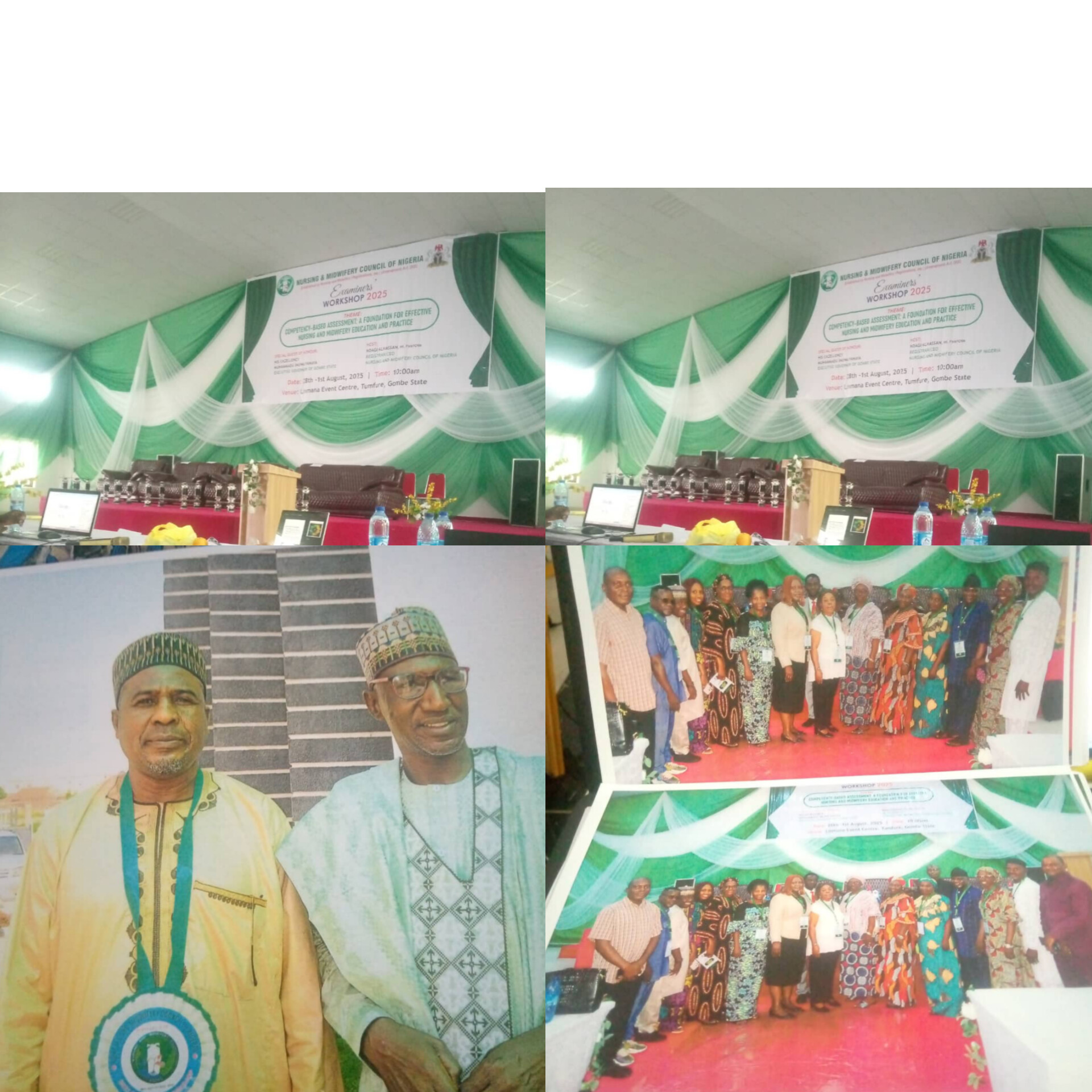
By Editor Daily Facts
Nurses and midwives across Nigeria have been charged to uphold professionalism, compassion, and adaptability in delivering quality healthcare services, as Gombe State hosted the 2025 National Examiners Workshop organized by the Nursing and Midwifery Council of Nigeria.
Declaring the workshop open on Tuesday in Gombe, Governor Muhammadu Inuwa Yahaya, represented by the Commissioner for Health, Dr. Habu Dahiru, commended the Council for selecting Gombe State to host the crucial event. He emphasized the commitment of his administration to improving the health sector through policy reforms, infrastructure development, and capacity building.
“We have prioritized the health sector by upgrading Primary Healthcare Centres (PHCs) across all 114 wards in the state. This is to provide an enabling environment for healthcare professionals, including nurses and midwives, to deliver effective services,” Dr. Dahiru said.
He revealed that the state government has made significant improvements to the welfare of nurses and midwives, and urged them to show empathy in dealing with patients.
Dr. Dahiru also used the platform to call for a comprehensive review of the national nursing and midwifery training curriculum. He noted that the advent of Artificial Intelligence (AI) and other technological innovations in the global healthcare landscape demands that Nigerian practitioners adapt to modern trends.
“This is the time to update the training manual to reflect emerging realities. The future of healthcare lies in innovation, and nurses—especially those in rural communities—must be equipped with the skills and knowledge to meet these evolving challenges,” he added.
The guest speaker, Professor Saleh Garba, lauded the organizers of the workshop and urged participants to make practical use of the knowledge and skills acquired during the training. He described the workshop as a vital platform for updating participants on global best practices in nursing and midwifery education.
Also speaking at the event, the Emir of Akko, Alhaji Umar Muhammad Atiku, described nurses and midwives as pivotal members of society who contribute meaningfully to community well-being. He appealed to all levels of government to prioritize investment in their welfare for improved service delivery.
The theme of the 2025 workshop, “Competency-Based Assessment: A Foundation for Effective Nursing and Midwifery Education and Practice,” underscores the need for a modernized, skills-based approach to training that aligns with international standards.
The workshop brought together examiners, educators, health professionals, and stakeholders who deliberated on critical aspects of nursing education, including curriculum review, assessment methods, and integration of emerging technologies.
As the healthcare sector continues to evolve, stakeholders at the workshop agreed that the challenge ahead lies in how quickly nurses and midwives can adapt to change—not only to enhance service delivery but also to strengthen the nation’s overall health system.
ENDS
Health
Gombe Hosts National Nursing Workshop, Urges Review of Curriculum and Embrace of AI in Healthcare
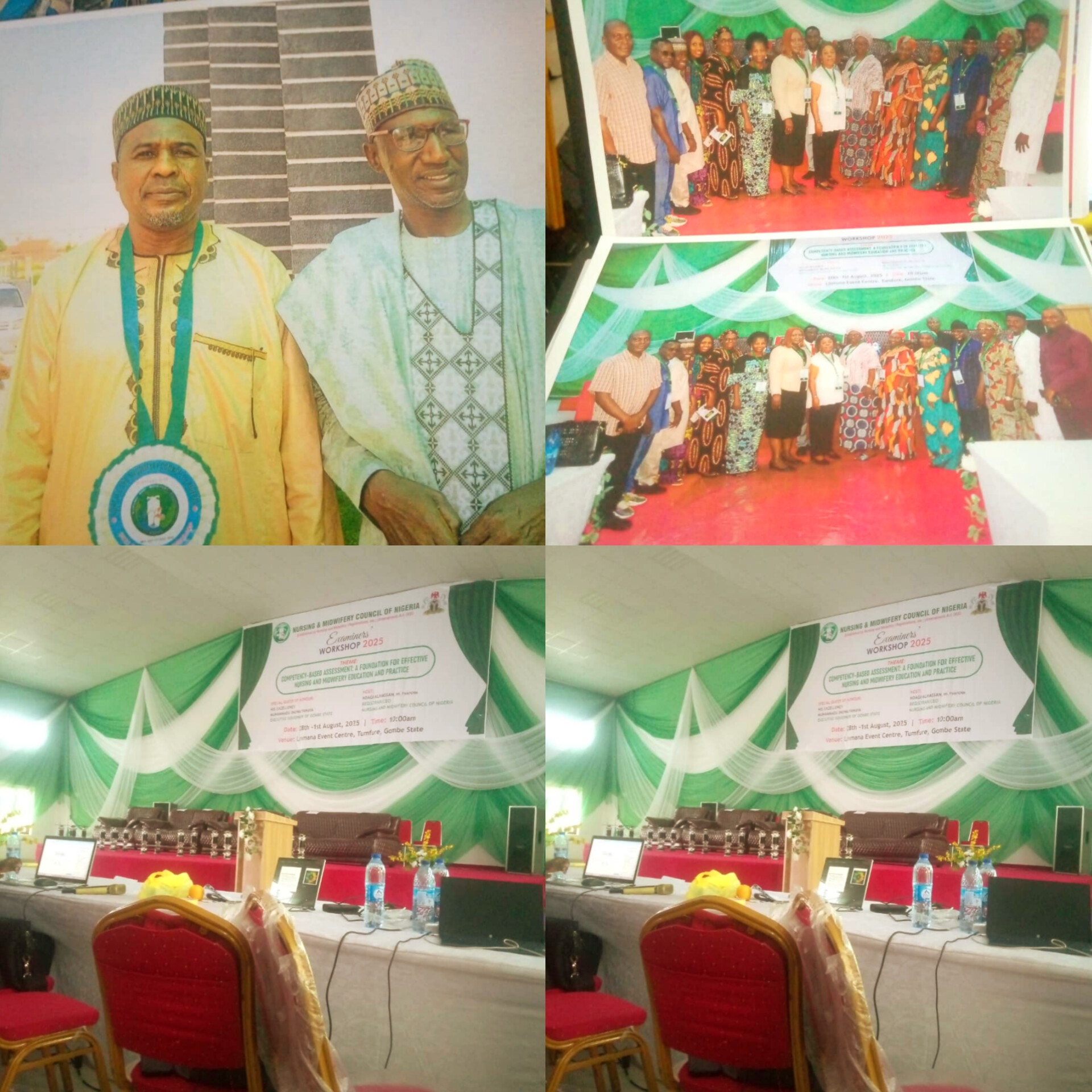
By Editor Daily Facts
Nurses and midwives across Nigeria have been charged to uphold professionalism, compassion, and adaptability in delivering quality healthcare services, as Gombe State hosted the 2025 National Examiners Workshop organized by the Nursing and Midwifery Council of Nigeria.
Declaring the workshop open on Tuesday in Gombe, Governor Muhammadu Inuwa Yahaya, represented by the Commissioner for Health, Dr. Habu Dahiru, commended the Council for selecting Gombe State to host the crucial event. He emphasized the commitment of his administration to improving the health sector through policy reforms, infrastructure development, and capacity building.
“We have prioritized the health sector by upgrading Primary Healthcare Centres (PHCs) across all 114 wards in the state. This is to provide an enabling environment for healthcare professionals, including nurses and midwives, to deliver effective services,” Dr. Dahiru said.
He revealed that the state government has made significant improvements to the welfare of nurses and midwives, and urged them to show empathy in dealing with patients.
Dr. Dahiru also used the platform to call for a comprehensive review of the national nursing and midwifery training curriculum. He noted that the advent of Artificial Intelligence (AI) and other technological innovations in the global healthcare landscape demands that Nigerian practitioners adapt to modern trends.
“This is the time to update the training manual to reflect emerging realities. The future of healthcare lies in innovation, and nurses—especially those in rural communities—must be equipped with the skills and knowledge to meet these evolving challenges,” he added.
The guest speaker, Professor Saleh Garba, lauded the organizers of the workshop and urged participants to make practical use of the knowledge and skills acquired during the training. He described the workshop as a vital platform for updating participants on global best practices in nursing and midwifery education.
Also speaking at the event, the Emir of Akko, Alhaji Umar Muhammad Atiku, described nurses and midwives as pivotal members of society who contribute meaningfully to community well-being. He appealed to all levels of government to prioritize investment in their welfare for improved service delivery.
The theme of the 2025 workshop, “Competency-Based Assessment: A Foundation for Effective Nursing and Midwifery Education and Practice,” underscores the need for a modernized, skills-based approach to training that aligns with international standards.
The workshop brought together examiners, educators, health professionals, and stakeholders who deliberated on critical aspects of nursing education, including curriculum review, assessment methods, and integration of emerging technologies.
As the healthcare sector continues to evolve, stakeholders at the workshop agreed that the challenge ahead lies in how quickly nurses and midwives can adapt to change—not only to enhance service delivery but also to strengthen the nation’s overall health system.
ENDS
Health
UNICEF, Gombe RUWASSA Back Faecal Sludge Plan to Save Lives and Create Jobs
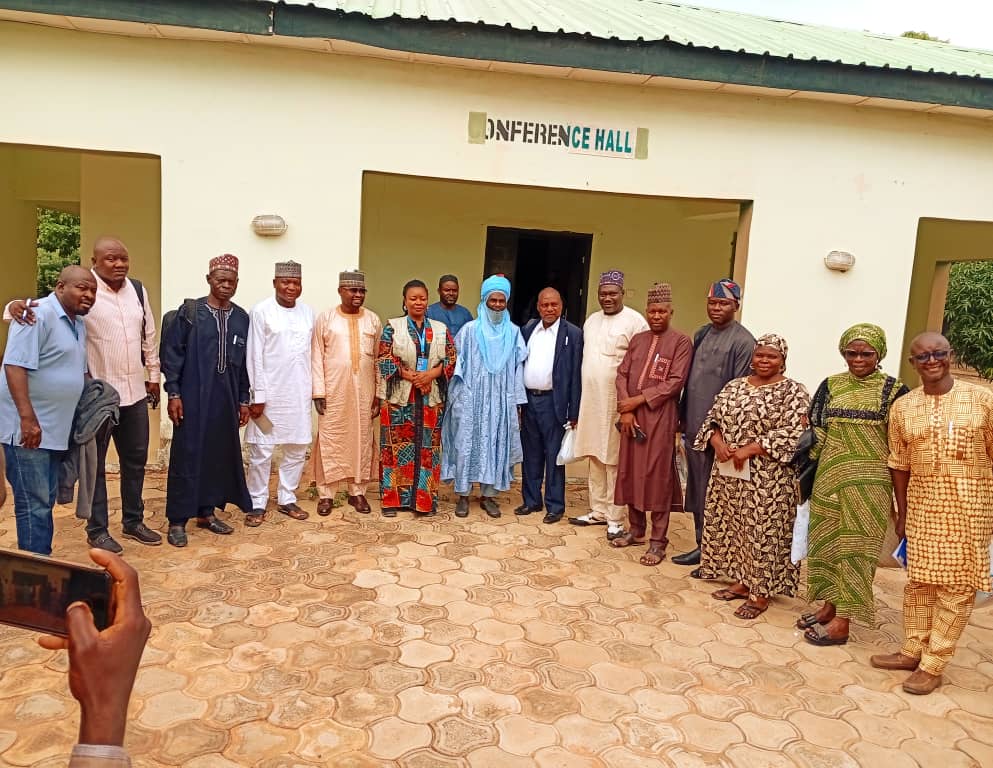
By Our Correspondent
In a renewed drive to improve sanitation and combat public health risks, stakeholders in Gombe State have advocated for the adoption of Faecal Sludge Management (FSM) as a sustainable solution to poor sanitation, youth unemployment, and environmental degradation.
The call was made during a one-day Media Dialogue on Accelerating FSM Strategy Adoption in Gombe State, organised by the United Nations Children’s Fund (UNICEF) in collaboration with the Gombe State Rural Water Supply and Sanitation Agency (RUWASSA).
Declaring the event open, the Gombe State Commissioner for Water, Environment and Forest Resources, Mr. Mohammed Fawu, noted that many communities in the state rely on on-site sanitation systems such as pit latrines and septic tanks, which, when poorly managed, pose serious threats to public health and the environment.
> “Overflowing pits, indiscriminate disposal, and groundwater contamination are not just inconveniences — they are threats to human dignity, water security, and the health of our population,” Fawu warned.
He reaffirmed the state government’s commitment to developing a functional, inclusive, and sustainable FSM framework to protect lives and livelihoods across communities.
In her remarks, Dr. Nuzhat Rafique, Chief of Field Office, UNICEF Bauchi Field Office, represented by Nanbam Michael, a UNICEF WASH Officer, said the media engagement aimed to build momentum around FSM in Gombe, particularly as the state works toward achieving Open Defecation Free (ODF) status.
> “Jigawa State has achieved ODF status, but their current challenge is managing filled-up toilets. We want Gombe to learn from this and prepare ahead with a solid FSM strategy,” she said.
Rafique added that FSM is a critical component of UNICEF’s “Clean Nigeria: Use the Toilet” campaign, which has been domesticated in Gombe to drive behavior change and sanitation reforms. She expressed optimism that, through ongoing efforts such as Community-Led Total Sanitation (CLTS), some communities in Gombe could attain ODF status by the end of 2025.
Also speaking, Prof. Wilson Danbature of the Department of Chemical Sciences, Gombe State University, highlighted the economic potential of FSM, saying it could generate employment opportunities across the sanitation value chain—from desludging and plant operations to resource recovery and reuse.
> “FSM is not just a sanitation solution; it’s an economic opportunity. Establishing faecal sludge treatment plants (FSTPs) can create jobs, improve public health, generate revenue, and promote environmental sustainability,” Danbature noted.
Dr. Abubakar Lumumba, Sector Lead for WASH at RUWASSA, echoed the need for attitudinal change to eliminate open defecation. He lamented that no community in Gombe State has been officially declared ODF and called for intensified efforts at both government and community levels.
In a practical example of the business potential of proper sanitation, Khalid Umar, Chairman of Public Convenience Maintenance in Gombe, shared his three-decade-long success in managing public toilets around Gombe Main Market. He disclosed that his business earns between ₦4,000 and ₦7,000 daily, which has supported his family and employed several youths.
> “With proper support and infrastructure, managing faecal sludge can be a profitable and dignified business. We need stakeholders to invest in this sector,” he said.
At another FSM sensitization held in Kwami Local Government Area, Opeyemi Olagunju, UNICEF Communication Officer in Bauchi, emphasized that FSM is key to climate-resilient sanitation and safe waste disposal. He called on journalists to amplify the campaign against open defecation, saying public awareness is essential for behavioral change.
Speaking at the same event, Mohammed Sadiq, Director of Water Services at the Gombe State Ministry of Water Resources, warned that poor FSM could lead to groundwater contamination and disease outbreaks. Representing the Commissioner, Sadiq outlined the government’s vision for FSM, which includes:
Clearly defined roles for relevant agencies
Regulatory enforcement
Private sector involvement
Community-driven treatment centers
He added that treated waste could be transformed into bio-fertilizer, biogas, or agricultural water, further highlighting the economic benefits of a functional FSM system.
The Way Forward
With growing population pressure, increasing toilet use, and a state-wide campaign against open defecation, experts agree that Gombe must act swiftly. Proper faecal sludge management is not only about sanitation — it is about health security, economic empowerment, environmental safety, and dignity for all.
As Gombe intensifies its push for ODF status, stakeholders say the time is now to build the systems that will manage what comes after — filled toilets and the waste they leave behind.
-

 Leadership1 year ago
Leadership1 year agoBreaking: African Union Appoints Pantami as Co-Chair of the 4th Industrial Revolution Policy Council
-

 Appointment11 months ago
Appointment11 months agoGombe State Indigene, Appointed New Vice Chancellor (ATBU)
-

 Politics2 years ago
Politics2 years agoFormer Gombe State APC Promoters Forum Chairman Attacked Following Political Commentary
-
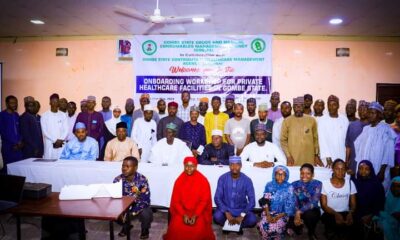
 Health1 year ago
Health1 year agoGombe State Organizes Onboarding Workshop for Private Healthcare Facilities
-
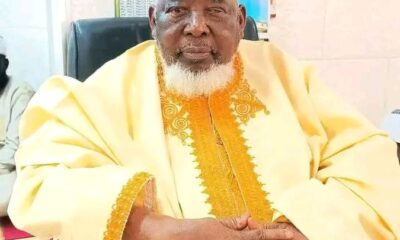
 Death6 months ago
Death6 months agoProminent Nigerian Islamic Scholar, Sheikh Sa’idu Hassan Jingir, Passes Away
-
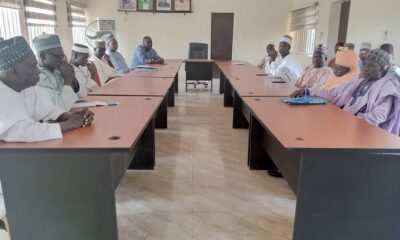
 Water1 year ago
Water1 year agoGombe Government Mobilizes Stakeholders to Combat Illegal Water Connections
-
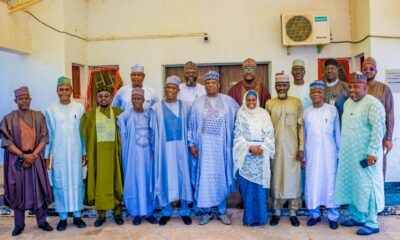
 Politics1 year ago
Politics1 year agoGombe State Inaugurates Human Capital Development Council
-
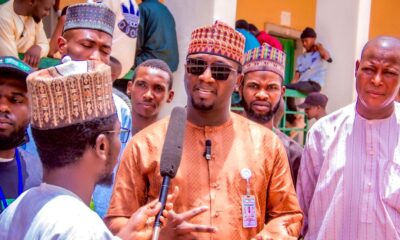
 Politics1 year ago
Politics1 year agoGombe State Launches Presidential Palliative Program (PPP) to Aid Small Businesses
